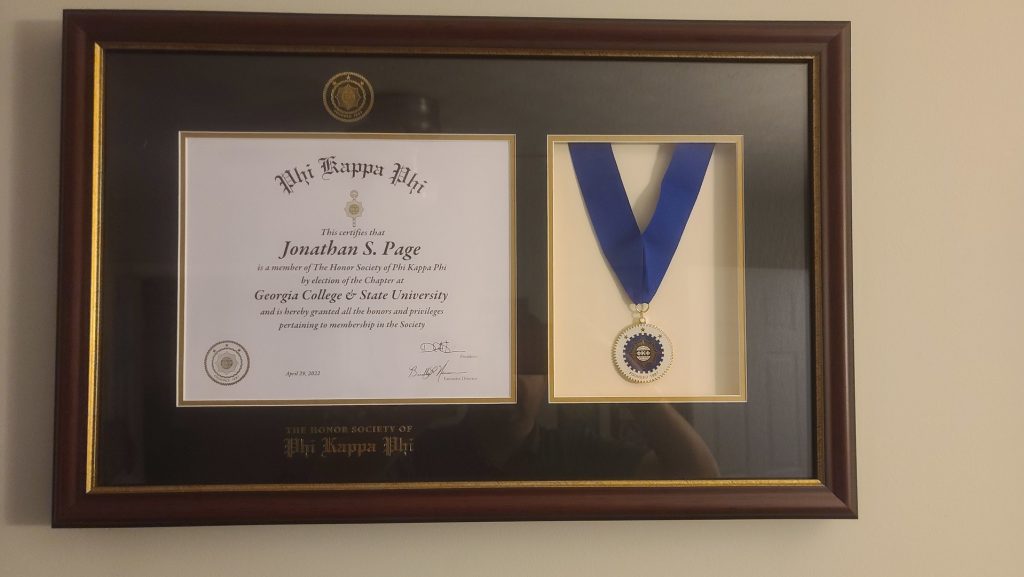
Does graduating with honors really matter? Maybe you’re a first-year student asking this question, hopeful but apprehensive as you look ahead to your years of schooling. Perhaps it’s your final year of school, and you’re dealing with a severe case of “senioritis,” wondering if it’s worth it to keep putting in the late nights and long hours. You may be looking to start applying to your first full-time job, or you may be getting ready to submit applications to graduate or Ph.D. programs. Whatever your circumstance, it’s natural to wonder if your efforts will pay off. Students should know that graduating with honors does matter. An honors distinction is an easy way to judge the success you had in school. While earning honors isn’t the most important thing, students in school should work to achieve a high GPA, and therefore, high honors.
What Are Honors?
Graduating with honors may look slightly different from university to university, but generally follow similar criteria. Latin honors are awarded based on overall GPA; a GPA of 3.4 will garner the title cum laude, which is Latin for “with praise.” A GPA of at least 3.6 is magna cum laude, Latin for “with great praise.” Finally, a GPA of 3.8 or higher is awarded the honor summa cum laude, which is Latin for “with highest praise.”
In addition to these Latin honors, schools may also offer honor programs, which are usually a more academically rigorous course progression. Schools can also offer departmental honors, which are based on GPA and additional outstanding academic achievements in a discipline (such as the completion of significant projects or research). However, most generally, when one refers to “graduating with honors” from college, the Latin honorifics are the intended meaning. These Latin honors are based strictly on your GPA at graduation. Now, for those who are wondering, “Does graduating with Latin honors matter?”: The words themselves (cum laude, magna cum laude, or summa cum laude) are significant, but their true impact is the GPA communicated by the honors.
Why Honors Matter
Now that we’ve covered what it means to graduate with honors, we’ll examine whether or not it matters. As you’ll soon learn, the answer is often a resounding “yes”! Whether you’re looking to apply for a job, get into medical school, or attend grad school, admissions offices and potential employers will look at your academic record to learn more about you.

Honors Demonstrate Subject Mastery
Whenever a student graduates with honors, a clear denotation of the honor is that the student achieved strong marks in all of their classes. What this means to potential employers or graduate schools is that you have mastered the subject matter of your courses. Now, there is a growing understanding that a letter grade or GPA cannot always account for a student’s understanding of the coursework. A professor may grade his or her class leniently and give someone an A grade when their knowledge of the material may only warrant a C. On the other hand, many circumstances may cause a student to get a low grade when they know a subject very well. For example, if a major life circumstance occurs during a semester, they may fall behind on their assignments or be academically penalized for a poor attendance record.
For the most part, graduating with honors indicates that a student has mastered their degree content. A potential employer in the field of information technology, for example, may look at two applicants with the same computer science degree and prefer the applicant who graduated cum laude over the candidate with no honors. The applicant who graduated cum laude has shown through their academic success that they have an excellent understanding of computer science.
What About Medical School ?
But does graduating with honors matter for medical school? It absolutely does. With highly competitive programs, it’s essential for applicants to have as strong an academic record as possible. Admissions offices look to see if applicants will be able to handle the rigors of medical school. Honors directly relate to your GPA. Your GPA directly relates to the grades you achieved in each class. Therefore, when an admissions counselor sees summa cum laude after your degree, they know that you not only received a degree, but that you excelled at your classes along the way. If you have the mindset that “Ds get degrees” but hope to apply to a terminal degree program, realize that a low GPA, and therefore a lack of honors, may communicate you cannot keep up with the coursework.
Honors Demonstrate Soft Skills
The second reason that graduating with honors matters is that it demonstrates your soft skills. As previously mentioned, many factors can cause someone to receive a high or low grade in school. Subject knowledge is not the only thing needed to achieve a high GPA. A student must also exercise diligence, self-discipline, and time-management skills to succeed in a class. In many ways, being a student is like being an employee: A student is given a variety of routine tasks to complete, as well as larger projects. Both an employee and a student must work together as members of a team to put together presentations and reports. Both must manage a variety of competing priorities and responsibilities with optimal output. In the professional world, this output is measured through a variety of metrics, depending on the industry. In the academic world, this output is measured through grade point average.
In this way, graduating with honors demonstrates a student’s soft skills. It shows how successfully a student was able to manage their tasks and responsibilities through their academic year. It indicates whether they were able to study in an efficient way, were able to manage their time properly, and if they were able to work well with team members. For future employers, seeing a student graduating with honors can verify that the student has the competence to do the work they are assigned to do. For graduate or doctoral programs, a student graduating with honors signifies that they not only have mastered their subject but have mastered the art of being a student.

Honors Highlight Extracurricular Experience
Finally, it matters for a student to graduate with honors, because honors can help highlight extracurricular experiences. This is a powerful benefit that should not be overlooked in cover letters or interviews. Whether you’re hoping to enter the workforce after school or to pursue further studies, it’s always attractive for candidates to be active outside of the academic world. Many employers look to see if a student is involved in their community, whether they take leadership roles in student organizations, or if they spend time doing volunteerism. Admissions offices look for the same. Graduating cum laude, magna cum laude, or summa cum laude is especially impressive when you have a variety of nonacademic responsibilities to balance.
Consider two separate applicants for an entry-level position: both applicants were active on campus, perhaps working a campus job while in school, leading a student organization, and volunteering with a local nonprofit. However, one applicant graduated with honors, while the other did not. The applicant who graduated with honors can look at their academics and proudly state that, even as they juggled many different responsibilities in many different realms, they were able to maintain a high level of quality in their schoolwork.

In summary, it is certainly clear that it does matter to graduate with honors from your educational institution. As a student, it’s of great importance to work hard at school. An undergraduate program only lasts a few years and is a relatively short period of time when compared to the rest of your life. Take advantage of the unique season of college to learn as much as possible, and work as hard as possible in your classes. Remember that people do look at honors as a way to benchmark your success while in school. However, keep in mind that grades aren’t everything. If you weren’t able to meet a certain GPA, know that applications for graduate school or post-college employment have grown more holistic, and many factors are taken into consideration.
If you’re coming to the end of your academic years, it’s important to showcase the hard work you’ve invested in earning your degree. Take a look at our extensive catalog of honors frames and start framing your diploma today!









